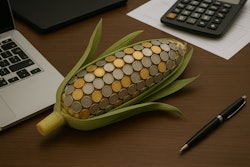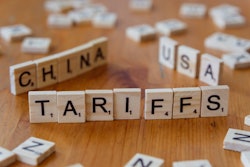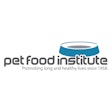
In 2024, Brazil saw the highest export numbers for the pet sector since recordkeeping began in 2014, with pet food accounting for over 80% of the total. On the import side, high tax burdens have led to decreased domestic production, boosting demand for foreign products.
Read this article in Portuguese
Pet food alavanca exportações e setor pet brasileiro quebra recorde
Brazil’s pet sector has broken export records. In 2024, pet-related exports reached $580.6 million—the highest figure since data collection began in 2014. Compared to 2023, this represents a 29.7% increase. The data comes from ComexStat and was compiled and released exclusively to Pet Food Forum Brazil by the Brazilian Association of the Pet Products Industry (Abinpet), in partnership with the Pet Brazil Institute (IPB).
This growth was driven primarily by exports of pet food. Pet food and treats accounted for 86% of Brazil’s total pet exports, totaling nearly $500 million. Pet care products followed with $67.6 million (11.6%) exported. Ingredients, veterinary products, and live animals made up the remaining 2.3% of exports in 2024.
According to Abinpet, this growth is due in part to market diversification and increased Brazilian presence in neighboring Latin American countries. “We also have to consider the competitiveness and quality of Brazilian products in the global market, along with a favorable exchange rate,” said José Edson Galvão de França, Executive President of Abinpet and member of IPB’s advisory board, in an interview with Pet Food Forum Brazil.
In 2024, the leading importers of Brazilian pet products were Colombia, Uruguay, the United Arab Emirates, Bolivia, and Chile.
Pet Food Imports Jump 60%
Brazil also hit record levels for pet sector imports in 2024. According to Abinpet, imports rose 63.9% compared to 2023, reaching $20.1 million—the highest amount since 2014 and well above the previous record set in 2021 ($14.79 million). Pet food represented nearly the entire volume of imports ($20.08 million).
Abinpet’s report highlighted that the United States, Austria, and Thailand were among the top suppliers of imported goods, accounting for 66.1% of the total import value.
What to Expect in 2025
Looking ahead, both exports and imports are expected to remain strong. Abinpet projects that if current trends hold, exports could reach between $650 million and $700 million in 2025. Pet food is expected to continue leading the way, maintaining a share of over 85% of total exports.
As for imports, Abinpet’s president anticipates continued growth in international purchases of pet food, largely due to a projected decline in domestic production.
According to data from Abinpet and IPB, 2024 marked the first drop in national pet food production in a decade. A 0.6% decrease compared to 2023 brought total output to around 4 million metric tons—well below Brazil’s potential capacity of 9 million.
Galvão de França emphasized that Brazil’s heavy tax burden on pet products is hindering production growth and reducing the market’s self-sufficiency, leading to greater dependence on imports. In Brazil, complete pet food is taxed as a luxury item—on par with alcohol and tobacco. In practice, the total tax burden on complete pet food can reach nearly 50%, meaning that for every R$1.00 spent, R$0.50 goes to taxes. “Based on current tax and exchange rate conditions, we estimate that the production drop could worsen this year, reaching nearly 4%,” said Galvão de França.
















